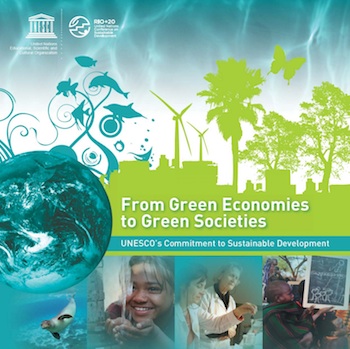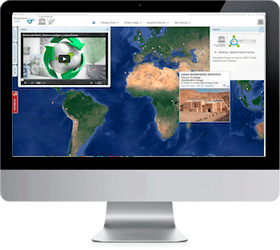UNESCO’s Commitment to Sustainable Development (2011).
 UNESCO promotes capacity-building in basic sciences and engineering with the aim of enhancing human resources development; increasing education for green technologies, including renewable energy and energy effi ciency; and leverging the transfer of scientific knowledge, thus bridging the knowledge gap between developed and developing countries.
UNESCO promotes capacity-building in basic sciences and engineering with the aim of enhancing human resources development; increasing education for green technologies, including renewable energy and energy effi ciency; and leverging the transfer of scientific knowledge, thus bridging the knowledge gap between developed and developing countries.
…/…
Addressing the challenge of a new global sustainable energy system involves an increased use of alternative and renewable energy sources. It requires the availability of local competencies as well as endogenous scientifi c capacity as a foundation for increased knowledge of the various related technologies and their adaptation to different contexts and needs.
…/…
Renewable Energy for Sustainable Development: Today, unequal access to electricity constitutes a real social inequality that must be addressed. At present, approximately 1.4 billion people, representing over 20% of the world’s global population, lack access to electricity services and some 85% of them live in the rural areas of developing countries. In Sub-Saharan Africa, they represent approximately 72% of the population and this fi gure rises up to 88% for the rural áreas.
![]() From Green Economies to Green Societies | PDF
From Green Economies to Green Societies | PDF















